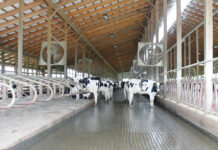OZARK, Mo. — Many parents dread the empty-nest syndrome, the feeling of loss that comes when children leave home. But, many parents may not even experience it.
“More and more grown children are opting either to continue living with their parents, or to return home after unsuccessful tries at independence,” said Renette Wardlow, a human development specialist with University of Missouri Extension.
What’s at play?
A combination of social and financial factors is contributing to the ‘refilled-nest’ syndrome.
Unemployment, high rents, inflation, and the knowledge that they can go back home are making some young adults move back in with their parents.
“This move can be a traumatic one for both parents and grown children, if some things are not discussed and agreed upon in advance,” said Wardlow.
How long
The first thing parents should find out when a child returns home, suitcase in hand, is exactly what that returning person has in mind. Is this a short- or long-term stay? Is it just a visit, or a permanent move back? Why is the son or daughter returning? What resources is he or she bringing back home?
’30 and out’ rule
“It is not recommended that grown children be encouraged to live at home indefinitely, in most cases. An over-protective family can ruin a young adult’s ability to learn independence, to take control of his or her own life,” said Wardlow.
Pitch in
Once the length of the stay and why the adult son or daughter is moving back home have been discussed, parents and grown child need to talk about finances and household responsibilities.
“As much as possible, adult children should pay some portion of the household expenses, whether it be the grocery bill or a portion of the rent or mortgage,” said Wardlow.
Often children forget that parents change, too. A grown child may fail to realize that his or her parents may not have the financial resources they had when they were younger, especially if the parents are retired.
“Grown children should not take it for granted that their parents can, or will, provide free room and board,” said Wardlow.
If the adult child has no income, then Wardlow says they should be expected to do odd jobs and work around the house in exchange for room and board.
“Often older people need home maintenance work that is too physically stressful for them, such as painting, cleaning exterior windows, or refinishing furniture. Children should be willing to take over these chores,” said Wardlow.
Things are different
The young adult should also remember he or she is not returning to a child-parent relationship, but to an adult-adult relationship. A young adult does not have to be looked after the way a child does.
For example, it’s immature for a grown child to expect his or her mother to do all the laundry and cooking and other care-taking chores.
Moms, don’t ‘enable.’
Wardlow warns that mothers who enjoy taking care of grown-up children might stop and consider if they are encouraging their children to stay dependent, rather than becoming responsible adults.
In addition to deciding how the financial arrangements will work, and who will be responsible for what chores, parents and adult children living together should also discuss each other’s need for privacy and self-respect.
“Defining relationships at the very beginning could prevent some problems. But what it comes down to is that all the people involved, parents and grown children, must be mature enough to respect the needs of the other persons, and their own responsibilities,” said Wardlow.









